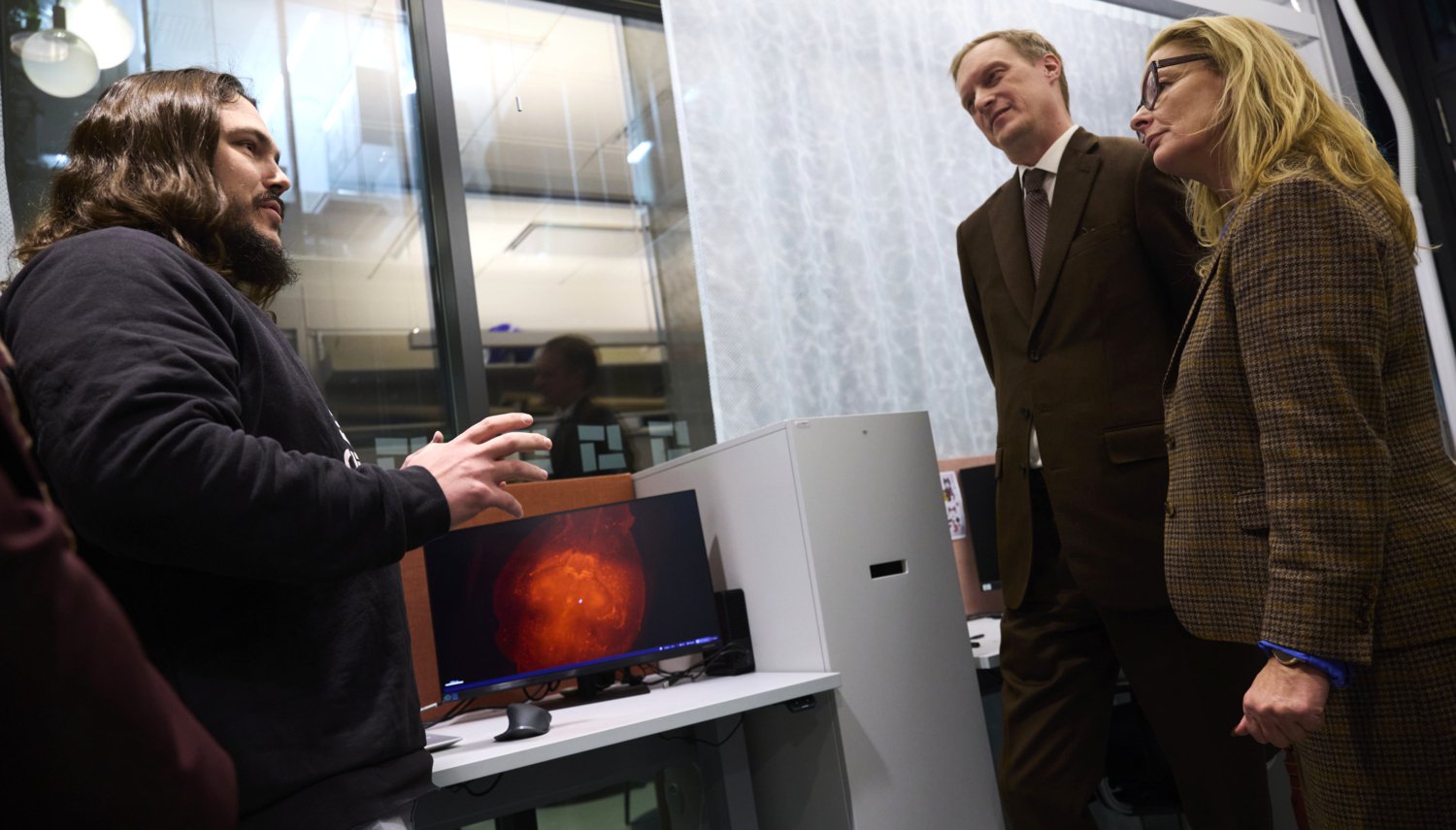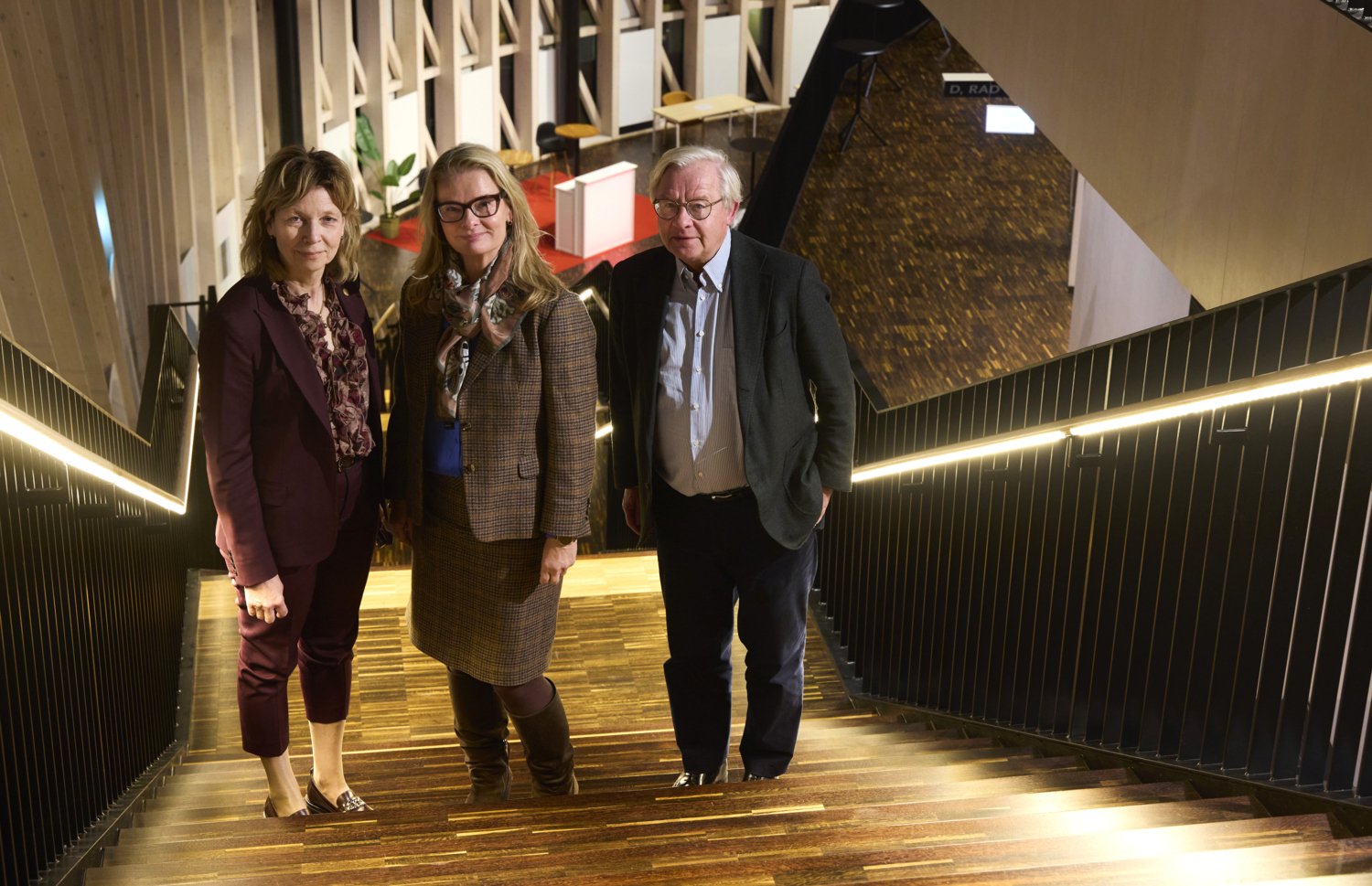Minister for Upper Secondary School, Higher Education and Research Lotta Edholm visited KI on 12 November. While being escorted around the Biomedicum research building, speaking with researchers in multiple sclerosis and finding out more about precision medicine, she asked questions concerning animal experimentation and KI raised the issue of Ahmadreza Djalali, the KI researcher still incarcerated in Iran.
Biomedicum is one of Europe's largest research centres, home to world-leading research in molecular neurobiology, amongst many other fields. This was the message that Professor Sten Linnarsson impressed upon Edholm as he guided her around in the company of KI president Annika Östman Wernerson and university board chair, Jan Nilsson.
During the tour, Professor Linnarsson presented a selection of research projects on the brain and central nervous system. On meeting researchers from other countries, including Russia and China, who informed her that the neurons they work with come from the USA, she gained insight into KI's global collaborative reach.
Six month's preparation
Edholm also met doctoral student Özge Dumral, who informed her that the research she was doing that very day was the product of six months' preparation.
Dumral is studying the pathology of multiple sclerosis (MS) and the genetic characteristics that protect against and elevate the risk of developing the disease. This she does using mice that have been genetically manipulated to lack an immune system, into which she injects a human immune system with MS-specific antigens.
"I'm trying to understand the very early development of MS in the spine," explained Dumral , researcher at the Department of Medical Biochemistry and Biophysics , KI. "It's taken six months to prepare this experiment, and it's only now that I can study the results for the first time."
In the next laboratory, her departmental colleague Damien Gilabert was staring at a computer screen studying neurons in the brain of a mouse. Professor Linnarsson explained that neuroscience is dependent on animal models to study different brain functions and, as in this case, behaviours.

"We still know very little about the brain and need animal studies to learn more about the relationship between synaptic signal transmission and how it manifests itself in different functions and behaviours," he said. "In this particular study, we're trying to work out which brain neurons are responsible for depression."
Questions about animal experiments
Edholm asked many engaged questions of the researchers and Professor Linnarsson, including ones about animal experimentation.
"How long do you need to do animal studies for?" she asked.
"We need them until the day we're prepared to do tests on humans," Professor Linnarsson replied. "It's also important to know that this work is strictly regulated by animal welfare legislation and a raft of ethical guidelines, and that vets are always on hand."
Student places and recruitment successes
Before her visit to Biomedicum, Edholm was welcomed by Professor Östman Wernerson and other representatives of the KI management.

During this part of the programme, Edholm was told about KI's success factors and challenges, such as the lack of places for on-site training on the medicine and nursing programmes, the research basis of health science programmes and the past summer's extremely successful international recruitment of assistant professors with a focus on excellence.
Professor Anna Martling presented the status of KI's various precision medicine projects, and the KI management petitioned for further governmental action to secure the release of Swedish-Iranian doctor and KI researcher Ahmadreza Djalali, who has been in arbitrary detention under the Iranian regime for over nine years.






